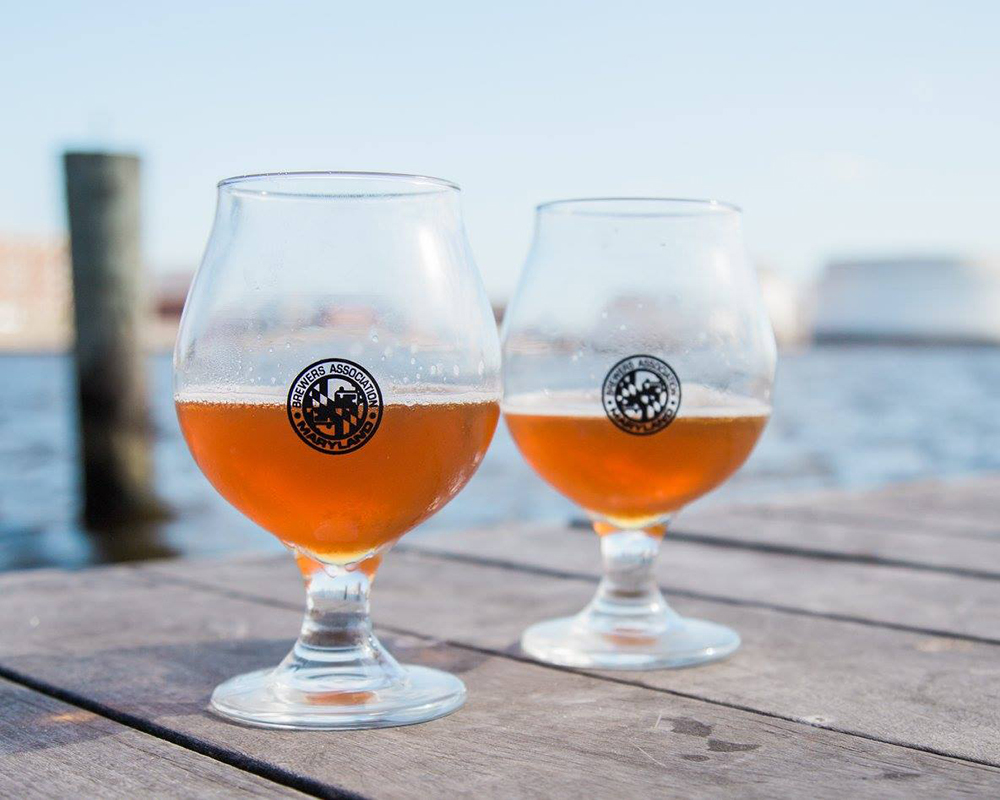
When you order a pint of beer at a local taproom and take the first, crisp sip, you probably aren’t thinking about all the permits, zoning hearings, and bills that had to get approved in order for you to imbibe.
But, for the past few years, that has been top of mind for the Brewers Association of Maryland (BAM), as well as local lobbyists, senators, and delegates. And this past legislative session, they were able to push forth a big breakthrough in the craft beer industry.
The Brewery Modernization Act of 2019 (HB1010) was passed on Saturday, which updates the state’s beer laws by increasing taproom sales, production capabilities, self-distribution limits, and hours of operation.
“Job creation and economic impact has been our consistent message since we began this effort three years ago,” says BAM executive director Kevin Atticks. “Our tactics have been different—and last year things got unnecessarily heated—but there have always been legitimate concerns from legitimate entrepreneurs. This session, we didn’t ask for infinite numbers, but we still asked for increases that will give our brewers the possibility to grow.”
Atticks greatly credits the new regime in the General Assembly in Annapolis, as well as the support of local delegates and lobbyist Brad Rifkin for bringing the bill to fruition.
Under the new act, which goes into effect July 1, Class 5 beer manufacturers (think Union Craft, Monument City, Heavy Seas, etc.) will have increased taproom limits of up to 5,000 barrels a year. For Class 7 microbreweries (like The Brewer’s Art, Nepenthe Brewing), taproom limits have also been increased to 5,000 barrels a year and their production cap has nearly doubled to 45,000 barrels a year.
In addition, the new law will remove the guided tour requirement for carry-out beer at breweries (up to a case), allow Class 8 farm breweries to extend their hours until 10 p.m., loosen regulations on self-distribution, and make it possible for all classifications to now brew beer at an off-site location.
“A lot of breweries have found beautiful spots that they never thought they’d outgrow,” says Atticks. “This gives them the ability to grow, but not necessarily move and leave their original market.”
In tandem with this bill is an important breakthrough in the Beer Franchise Law Reform legislation, which updates distribution regulations that hadn’t been touched since 1974. Back then, the laws were established to protect mom and pop wholesalers (or distributors) in the case that giant, mega-breweries decided to walk away. That’s why 180 days notice and a showing of “good cause” had to be proven in order to sever contracts.
“The problem is, since the craft beer boom, we now have a reversal of power,” explains Atticks. “Wholesalers are now the big kahuna and breweries are the small guy. They need flexibility to find a new wholesaler or switch it up if it isn’t working out.”
Under the new law, effective January 2020, breweries that produce less than 20,000 barrels annually (almost all in the state of Maryland), may, without cause, be able to leave a wholesaler after providing just 45 days notice.
“It was nice to see that all parties—retailers, wholesalers, and brewers—were able to get together and agree to continue to move our industry forward,” says Hugh Sisson, the founder of Heavy Seas Beer, who has been championing beer legislation for decades. “At the end of the day, it is always best if the various stakeholders work together. After a couple years in a row being at loggerheads, I think everyone deserves credit for overcoming the issues.”
In addition, local stakeholders with the Maryland Distillers Guild made some strides in the spirits world. As of July 1, distilleries will be able to serve cocktails with an amended Class 1 license (similar to the existing Class 9 you see at Blackwater, Old Line, and Seacret’s), pouring up to 7,750 gallons annually.
“We’ve been involved in the process for years and it wasn’t easy to get this bill passed,” says Max Lents, co-owner of the Baltimore Spirits Company and founding member of the distillers guild. “This bill lets the local liquor board create a license for us, so it’s still a not a done deal, but at least we have a clear path now. This certainly gives us more freedom in the future.”
While all of the legislative language and facts and figures can feel wonky, Atticks says that the average drinker will definitely notice a change once the laws are enacted.
“Maryland beer will be more available,” he says. “That means you’ll be able to buy more at breweries and see more of it in beer stores. Clearly, the customers want it and [this session] the message was received. Reform is going to happen.”
